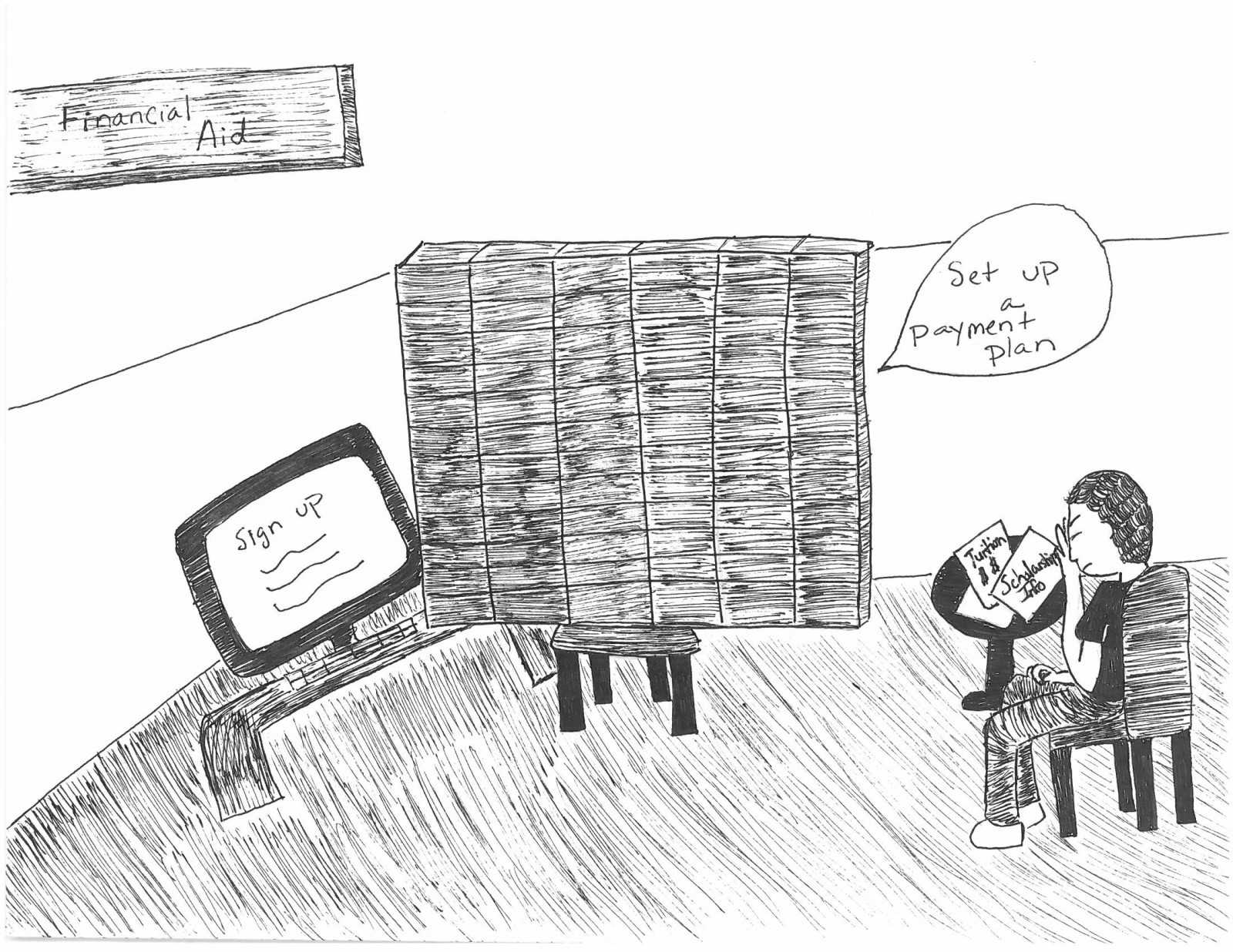Who was excited for Texas Wesleyan to get payment plans in the fall of 2018?
If you’re a student, probably not so much, especially if you got to experience the glorious time before payment plans.
Payment plans are necessary to keep the university from going into debt.
In a Rambler article from September 2018, Vice President of Enrollment, Marketing, and Communications John Veilleux said that due to students not paying for classes, the university ended up being in more than $1 million in bad debt. This is what spawned the payment plans.
“We need to put in best practices that allow us to meet our financial obligations as a university as a business,” Veilleux said in the September 2018 article. “We don’t do the student a favor, and we don’t do the university a favor by not being able to pay our bills.”
While payment plans are a necessary addition for some students who just weren’t keeping up with their payments, there’s reasons why the rest of us students who are paying their tuition aren’t happy about them.
1) Forced sign-up with threat of deregistration:
While the threat of deregistration for not paying for classes is valid reasoning, Wesleyan can be a little premature with deregistration sometimes. Therefore, students that don’t need to set up payment plans are forced to set them and pay the convenience fee to avoid being deregistered.
One way this occurs is when students have external scholarships coming in. The external scholarships aren’t counted until the check is sitting in the university’s hands even if students have all the documentation, correspondence with the donor, or even an estimated date of when the check will arrive. Students shouldn’t be punished for bringing in external scholarships to the university.
2) Large payments up front:
Students that were used to being able to make payments as they got the money throughout the semester are now having to come up with either the full semester’s tuition payment of more than $15,000 or pay $1,500 up front followed by 30% of their tuition less than a month later.
If students are on the payment plan in the first place, they most likely don’t have large sums of money like $4,000 laying around. Paying students shouldn’t be punished for the students that didn’t pay their tuition and left the university with their debt.
3) Convenience fees:
Tuition is already expensive enough. Does the university really need to add on $25 non-refundable convenience fee in addition to the $2.95 service fee students get charged every time they make a payment? There’s nothing convenient about another fee when people are already struggling to make enough to pay for the actual tuition.
4) Communication errors:
There’s nothing more annoying than when students come to the financial aid office and are told one thing and then are told something different by the cashier’s office, or vice versa. Or when there’s a mix-up in their paperwork and it’s the student’s responsibility to catch it or suffer the consequences whether that be deregistration, less financial aid, late fees, etc. For the amount of tuition students pay, the university needs to do a better job of communicating between offices and catching errors in documentation if something looks weird.
Some of these complaints are typical of other universities, but that doesn’t mean Wesleyan has to follow the pack with them.
For example, there are convenience fees at both Texas Christian University and the University of Texas at Arlington, so it isn’t unusual. But it would be nice if students didn’t have to pay them.
Obviously, TCU and UTA both have payment plans, but TCU offers a way to get out of having a payment plan if students have paid 20 percent of tuition and then have the rest of it paid off after the first month of classes. This could be a potentially useful solution to students at Wesleyan waiting on external scholarships.
Another solution is for Wesleyan to let students that have proven reliable at paying tuition have the freedom to opt out of the payment plans. If the student fails at making the payment by the end of the semester, they could be put back on the payment plans again for the next semester.
This solution would keep the people that need to be on the payment plans on them, while allowing the students that have proven they can keep up with their own payments the freedom to make their own payments when they have the money.
That way, people don’t have to register for payment plans if they don’t need them or pay the additional charges, and Wesleyan will still have a method for helping people keep up with payments if they need it.

Cartoon by Hannah Onder









![Pippin, played by Hunter Heart, leads a musical number in the second act of the musical. [Photo courtesy Kris Ikejiri]](https://therambler.org/wp-content/uploads/2025/04/Pippin-Review-1200x800.jpg)
![Harriet and Warren, played by Trinity Chenault and Trent Cole, embrace in a hug [Photo courtesy Lauren Hunt]](https://therambler.org/wp-content/uploads/2025/02/lettersfromthelibrary_01-1200x800.jpg)
![Samantha Barragan celebrates following victory in a bout. [Photo courtesy Tu Pha]](https://therambler.org/wp-content/uploads/2025/05/20250504_164435000_iOS-834x1200.jpg)





![Hunter Heart (center), the play's lead, rehearses a scene alongside other student actors. [Photo courtesy Jacob Sanchez]](https://therambler.org/wp-content/uploads/2025/04/thumbnail_IMG_8412-1200x816.jpg)
![Student actors rehearse for Pippin, Theatre Wesleyan's upcoming musical. [Photo courtesy Jacob Rivera-Sanchez]](https://therambler.org/wp-content/uploads/2025/04/Pippin-Preview-1200x739.jpg)
![[Photo courtesy Brooklyn Rowe]](https://therambler.org/wp-content/uploads/2025/05/CMYK_Shaiza_4227-1080x1200.jpg)

![Lady Rams softball wraps up weekend against Nelson Lions with a victory [6 – 1]](https://therambler.org/wp-content/uploads/2025/04/Screenshot-2025-04-04-100924-1200x647.png)















